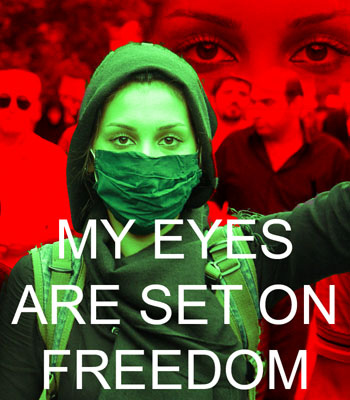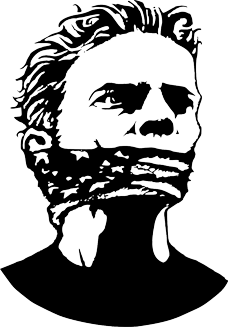| To turn our faces once again to civilization by Rene Wadlow 2015-01-14 09:13:35 | |
To turn our faces once again to civilization: Are we going to draw from the spirit enough strength to create new conditions and turn our faces again to civilization or are we going to draw our inspireation from our surroundings and go down with them to ruin? As Norman Cousins has noted “the main point about Schweitzer is that he helped make it possible for twentieth-century man to unblock his moral vision. There is a tendency in a relativistic age for man to pursue all sides of a question as an end in itself, finding relief and even refuge in the difficulty of defining good and evil. The result is a clogging of the moral sense, a certain feeling of self-consciousness or even discomfort when questions with ethical content are raised. Schweitzer furnished the nourishing evidence that nothing is more natural in life than a moral response, which exists independently of precise definition, its use leading not to exhaustion but to new energy.”
Since Alsace was part of Germany at the time, Schweitzer was considered an enemy alien in the French colony of Gabon. When the war broke out, he was first restricted to the Protestant missionary station at Lambaréné where he had started his hospital. Later, he was deported and interned in France. He returned to Gabon after the First World War, even more convinced of the need to infuse thought with a strong ethical impulse. His reflections in The Decay and Restoration of Civilisation traces in a fundamental way the decay. He saw clearly that “the future of civilization depends on our overcoming the meaninglessness and hopelessness which characterises the thoughts and convictions of men today, and reaching a state of fresh hope and fresh determination.” He was looking for a basic principle that would provide the basis of the needed renewal. That principle arose from a mystical experience. He recounts how he was going down river to Ngomo, a missionary station with a small clinic. In those days, there were steam boats on the Ogowé, and seated on the deck, he had been trying to write all day. After a while, he stopped writing and only watched the equatorial forest as the boat moved slowly on. Then the words “reverence for life” came into his mind, and his reflections had found their core: life must be both affirmed and revered. Ethics, by its very nature, is linked to the affirmation of the world. It is a response to the need to be active in order to serve the idea of the good. Schweitzer saw that he was “life which wants to live, surrounded by life which wants to live. Being will-to-life, I feel the obligation to respect all will-to-live about me as equal to my own. The fundamental idea of good is thus that it consists in preserving life, in favoring it, in wanting to bring it to its highest value, and evil consists in destroying life, doing it injury, hindering its development.” In his approach, Schweitzer felt kinship with the Chinese thinkers Lao Tze and Confucius. “The ethical conception of the Chinese philosophers were from their origin linked with the affirmation of the world. They too bear within themselves the energies capable of producing an ethical, civilization. Ethics no longer finds entire satisfaction in defining, enumerating, and recommending various virtues and various duties, but seeks to understand what they have in common in their diversity and how they flow from a single conception of good. It is thus that the great Chinese thinkers came to proclaim benevolence toward men as a fundamental virtue − a conviction that stems from reason and is fundamentally reasonable.” As Norman Cousins again notes “The individual in today's world feels cut off from the large forces or movements that determine his future. This leads to fatalism and default. Schweitzer demonstrated that one man can make a difference. He had no specific prescription or formula for the individual. All he hoped for was that the individual would be able to peel off the layers of hardened artificialities that separate him from his real self. Man's resources do not exist outside him. His responses must come from within. A thinking and feeling man is not a helpless Man. The sense of paralysis proceeds not so much out of the mammoth size of the problem but out of the puniness of purpose.” A recent book Against the Current (1) deals with the ways in which Schweitzer impacted the life of a young American who was searching to peel away the layers of his background and find his real self and purpose in life. Mark Higgins, at 18, decided to make a break of a year between the end of his secondary studies at a New England prep school and the start of university. His father, Carter Higgins, a businessman concerned with world peace and a more effective United Nations, was a friend of Norman Cousins, editor of the well-known journal The Saturday Review of Literature, also active in movements for a stronger UN and in efforts to halt the testing of nuclear weapons in the atmosphere. Cousins had encouraged Schweitzer to speak out on the nuclear issue which Schweitzer did in his “Declaration of Conscience.” Cousins felt that Mark Higgins could profit from working at the hospital at Lambaréné as others had benefited from their stay, and he facilitated Mark's acceptance there. Mark spent a year at the hospital, and much of the book is based on Mark's letters to his parents and other family members as well as interviews with medical people who were at the hospital at the same time. The hospital drew people needing care from many of the ethnic groups of Gabon. Each patient was accompanied by one or more members of his family who would cook and care for him. Schweitzer knew that when a person returned to his village, he would have to work again and would not have time to heal fully. Therefore people were allowed to stay at the hospital to recoup after they had finished their medical treatment. Thus Mark was able to chat with Gabonese from different groups and tell stories to the children who came with their parents. There was no school as such, and children were always ready to listen to a good story. Lambaréne is the third largest town of Gabon, after the two coastal cities of Libreville and Port Gentil. It was the center of the logging industry, the logs being floated down the Ogoué to Port Gentil. There are a good number of small villages in the area. Mark and a few others would leave the hospital to spend time in the villages, especially Saturdaynight when there were often dances and ceremonies, some religious, others just relaxation after a week's work. With his contacts with former patients returned to the villages, Mark helped with a medical survey of heart conditions in Gabonese villages. At the end of a year's work, Mark left the hospital with plans to cross the Belgium Congo, to go to East Africa, Israel and then back to the USA. Dr Schweitzer had advised not to take the risks, especially on the eve of the independence of the Congo. But Mark had a spirit of adventure. Unfortunately, he was caught up in the disorder and fighting just after the independence ceremonies. He was killed − all Whites being considered as Belgians. Nevertheless, from his letters, a cousin Clarinda Higgins was able to piece together his evolution and the impact of service at the hospital. Schweitzer touched the lives of many who worked or discussed with him. Most did not meet the dramatic end of Mark Higgins. They went on to touch the lives of others and to develop a wider understanding of reverence for life. ***************************** (1) Clarinda Higgins with William Armstrong Jr. Against the Current: How Albert Schweitzer Inspired a Young Man'sJourney (Westport, CT: Oakham Press, 2014, 246pp.) ****************************** René Wadlow, president and a U.N. representative (Geneva) of the Association of World Citizens and editor of Transnational Perspectives. | |
Copyright mediaforfreedom.com


